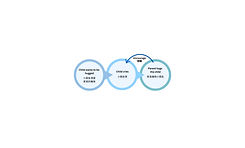
What is ABA therapy?
Applied Behaviour Analysis (ABA) is a scientific approach based on the application of learning theory to real-life experience. It emphasises on positive reinforcement. Unlike treating sickness with medication, there is no standardized procedures in ABA therapy. ABA therapy is child-oriented and the training programmes are tailor-made to accommodate the needs of children. ABA has been found one of the most widely-used and effective therapies which helps children with Autism and other Developmental Disorders learn different skills.


Antecedent, behaviour and consequence constitute the foundation of ABA, and these three factors shape our behaviour.
For example, your child cries when he wants you to hug him, and you eventually do so as you want to stop him from crying. The child learned that crying is an effective way to get your attention.

With reference to the ABC principle, children’s behaviour changes correspondingly to the consequences they receive. Misbehaviour could be corrected using the ABC principle while desirable behaviour could be strengthened.
ABA therapy includes but not limits to training children’s attention, strengthening their gross and fine motor, enhancing their socio-interpersonal skills, and improving their cognitive knowledge.
Apart from treating children with ASD, a vast of research has unanimously pointed out that ABA therapy could effectively help children with other difficulties, such as ADHD, ODD and social problems.
What can ABA Do
Enhance cognitive skills
Increase social and communication skills
Improve play and motor skills
Reduce problematic behaviours
How to get started
01
Consultation
Our clinical psychologist will have an in-depth interview with the parents to discuss all the concerns and expected goals. The child's skills in different domains will be assessed.
02
Programme Planning
A tailor-made training programme will be devised after a thorough discussion between our clinical psychologist and behavioral therapist. Training intensity, short-term and long-term goals will be proposed and implemented upon the parents' agreement.
03
ongoing training and programme review
Training progress will be monitored and reviewed from time to time, to make sure the child is on the right track. A joint meeting with the parents will be held on a regular basis.
